There’s a lot we can learn from watching the careers of prominent Black people. Icons like Melissa Harris Perry & Roland S. Martin provide at least 4 key lessons for Black employees and as Black professionals working in White spaces, we would be wise to pay attention.
To help us do that, let’s start with a quick analogy: one that compares the power of house guests and homeowners.
What Kind Of Black Employee are You: A House Guest or a Homeowner?
Homeowners and house guests have very different rules. Homeowners make major decisions like when to buy a home, what home to buy, what neighborhood the home should be in, and it should be decorated. Homeowners get to decide who sleeps where and they have final say on things like arranging the furniture, paint colors, where to hang which curtains, pictures etc. That’s why we use phrases like, ”your home is your castle.”
House guests on the other hand are invited into the home at the convenience and leisure of the homeowner. They’re usually only allowed into the home when the homeowner wants them to be there. If you plan on being a long time house guest you also plan on following the house rules. So long as the house guest obeys the rules she can stay. But once she gets on the homeowner’s nerves or otherwise overstays her welcome, the visit will be over.
This analogy is very instructive for Black people working in non Black spaces.
The House Guest: Melissa Harris Perry (MHP)
Like many in #nerdland, I was sad to see MSNBC pull the Melissa Harris Perry show off the air. MHP regularly used her voice to empower the Black community and other communities of color in ways that were really powerful and largely absent from most other networks (no, Don Lemon does not count).It is highly significant that her ability to discuss major political, social, and cultural issues on the MSNBC network ended after she choose to focus on the political and cultural implications of Beyoncé paying homage to the Black Panther party at the Super Bowl (and honey there were many). Her boss reportedly wanted a full two hours of election coverage. Said another way, the MHP Show, which we valued because of its ability to connect major world events to the issues facing the Black community (and vice versa), was essentially shut down because the host wanted to keep doing the thing that made her show a success. But MHP is a smart woman.
And because she is brilliant, she also knew that she was on borrowed time. As she’s said before:
“I show up on TV and say words because, at the moment, I have the cover of a powerful white man,” her boss at MSNBC, she said. “The moment that that powerful white man no longer wants me to sit on TV and say words, I will not be allowed to sit on TV and say words anymore.”
As we watched MHP kick ass and take names while walking away from the network with her head held high, I was both proud of her boss moves…and sad that she’d no longer be in the anchor chair. I was also reminded of another prolific Black journalist, TVOne news anchor, Roland S. Martin.
The Homeowner: Roland S. Martin
Roland S. Martin, who appeared regularly on CNN until 2013, left the network largely due to institutional racism. As he noted, while appearing on a segment about race for HuffPost Live:“You have largely white male executives who are not necessarily enamored with the idea of having strong, confident minorities who say, ‘I can do this,’” Martin said. “We deliver, but we never get the big piece, the larger salary – to be able to get from here to there…Martin continued, criticizing the network’s choice not to give him his own program. “If it’s a ratings game, and we won, how is it I never got a show?”
After Martin left CNN and announced he was going to host a new daily news show, called NewsOne Now, on the Black owned network, TV One, many considered it to be a step down. Quite a few reacted as if leaving a major cable news station for a marginally known Black owned network was a demotion or a mark of failure. They were wrong. NewsOne Now is “the first daily morning news program in history to focus on news and analysis of politics, entertainment, sports, and culture from an explicitly African American perspective.” As Martin himself noted:
Indeed. On a daily basis Martin uses the NewsOne Now platform to interview guests, analyze problems and dissect issues from a Black perspective (an unapologetically Black perspective, often with no filter—much to the delight of everyone in my family who watches). But he doesn’t just run the NewsOne show; he also spearheads a massive communications network.“This is probably one of the most important things I’ve done in my career… “I spent six years at CNN, and I’ll tell you what’s frustrating: a lot of times when the economy would come up you would just sort of talk about stuff in general … but what is the black unemployment rate? The black female, the black youth? And the same for other groups. This is really an opportunity for us to focus like a laser on those issues.”
Martin is a nationally syndicated columnist with Creators Syndicate, and is senior analyst for the Tom Joyner Morning Show, where his daily segment is heard on more than 100 stations and 8 million people daily. He also runs a daily Periscope stream of his where he further builds on the issues he raised throughout his other platforms.
In other words, the man is his own media conglomerate, aka: a Bawse.
Which means that he can use his Black voice to speak to Black issues from an unapologetically Black perspective, every day. On several occasions he has switched up the program schedule, while on air, in order to spend more time on particularly salient issues. As in, “we’re supposed to move to the next segment which deals with XYZ, however this issue we’re discussing right now needs more time. So we’ll do XYZ tomorrow.”
Do you know how rare it is for a Black news host to dictate how much time is going to be spent on an issue—simply because the issue is of particular importance to Black people?
It. Never. Happens.
Two weeks ago, TV One co-hosted a major Democratic Town Hall with CNN, Martin’s previous employer. Instead of playing a back room role, Martin co-moderated the event with CNN’s Jake Tapper. The next day, he hosted a two hour post town hall recap which added further analysis. He was even able to simulcast some of the recap with the Tom Joyner Morning Show—one of the most widely followed Black radio shows in the country.
This means the (Black owned) network more than doubled the time typically allotted for daily news to take a deep dive into political issues from a Black centered perspective. That type of media commitment to #BlackExcellence is incomparable. Literally.
But let’s be clear: the key reason Martin can dissect and thoroughly investigate Black issues with as wide of a reach is because he partnered with a Black owned network that is focused on providing substantive content for its Black audience.
Melissa Harris Perry was a houseguest at MSNBC. Roland Martin was a house guest at CNN and became a homeowner at TVOne. Both provide great lessons for the rest of us.
When you own your own spaces (i.e. when you’re a homeowner) you can speak as freely as you like and be as honest as you need to be. Without compromise. Our community still has a lot to learn when it comes to the benefits of occupying other folk’s spaces as opposed to owning our own.
Tips & Lessons For Black Employees:
No 1: Your Intelligence Doesn’t Matter
No matter how brilliant you are, as a Black person working in a White space you are always on borrowed time. Once you’re no longer willing (or able) to use the Black people super survivor skill called Making-White-People-Comfortable, you can and will be replaced. MHP is arguably one of the smartest Black people in the public sphere. She’s literally an expert on politics and voting. But her executive producer was told there were no resources for MHP to cover the 2016 presidential election. Her brilliance could not be contained in MSNBC’s White boxes (aka—she was “uppity” and didn’t stay in her “place”). So, like many before her, she had to leave so the White boxes could stay comfortable. Her time slot has been replaced with another show.
No 2: Have an exit strategy.
When you know that the White spaces you work in see you as a house guest, you should also know that you don’t have homeowner privileges and eventually, you’re going to have to find a new place to live. Use your house guest time wisely so that your next move can empower you to be a homeowner (or at least to be working towards that level of independence.
MHP did this to perfection. She walked away from MSNBC without a settlement package because they wanted to buy her silence. She valued her ability to speak freely more than the crumbs MSNBC was tossing her way so she left completely on her own terms, didn’t take the package and has been able to own her truth ever since. Like a Bawse. But she could walk away because she knew her own value and the value of her voice to her community. MSNBC couldn’t buy her silence because she had done what was necessary to build an independent empire. So when her house guest visit at MSNBC was over, she already had a home (a very nice, very cushy home) to go to.
No 3: Your Position Matters. Your Title Doesn’t.
I can’t tell you how many brilliant, Black professional friends I have who thought they were homeowners when they were really house guests. Roland Martin knew being at CNN wasn’t leading him to where he wanted to be. He knew he wanted to focus on Black issues and, most importantly, he knew he could not do that at CNN.
Black professionals have to be much more savvy at where we invest our time and brilliance. Sure, you could spend countless hours on the diversity committee, making small, minor, insignificant in-roads to “increase diversity” and make your workplace more “habitable” for other Black people. But if you’re a house guest, just know that all of those changes are temporary.
No 3.5: Understand Cost/Benefit Analysis
Let’s say you’re my house guest, sitting in the living room while I go to the kitchen. If you move my pictures, rearrange my furniture or make other “enhancements,” while I’m gone, I might be appreciative. But it’s more likely that I will be pissed off that you made these moves without my permission and will soon instruct you to getcha azz outta my house. Once you leave (or maybe even before you hit the door), I’m putting my pictures and furniture back the way I wanted them. Because that’s my prerogative as a homeowner.
Working to make change in other folks businesses (i.e. their “homes”) can be honorable. Working to create your own home is empowering.
No 4: Value the Homes in Your Own Neighborhood
When my husband and I moved to Brooklyn, we wanted to live in Bed Stuy, a predominantly Black (and freaking awesome) neighborhood. Many of our Black friends and family thought we were crazy for wanting to “move to the hood.” While some spent thousands monthly on rent in snazzy loft apartments with doormen, we bought a house on a block that was (at the time) “rough”…to say the least. Rough and beautiful. Our neighbors are Us and vice versa. We’re a largely Black community that supports and helps each other when we can.
Oh, and due to shifts in housing & employment patterns (i.e. gentrification and the great recession), many of our super cool Black professional friends are no longer employed where they once were, can no longer afford those snazzy apartments – but now can’t afford to buy in our neighborhood…while their White colleagues can and do.
When Martin left CNN, he was essentially leaving his house guest position to buy a home in a Black neighborhood. And he has been flourishing ever since.
This Is Complicated…
None of this is easy. With the rise of #BlackLivesMatter and other social movements centering on the inherent beauty and value in Blackness, Black folks are reconsidering a LOT of what we used to believe about the value of integrating into spaces that were explicitly designed to exclude us. It’s time we continue to push that analysis to the next level.
*******
Looking for more thoughts from an Afro State of Mind? Check out my book Afro State of Mind: Memories of a Nappy Headed Black Girl now available on Amazon.com in paper back or available here for e-book download! And if you want to stay connected follow me on Twitter, or Instagram “like” Afro State of Mind on Facebook or catch up on my latest Youtube videos!
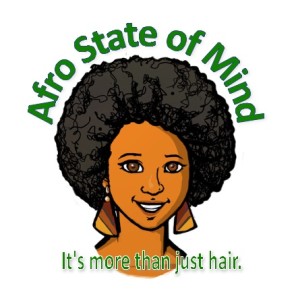

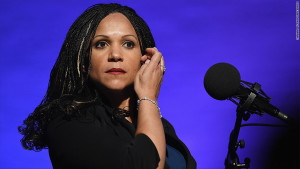
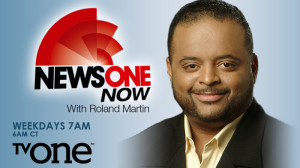

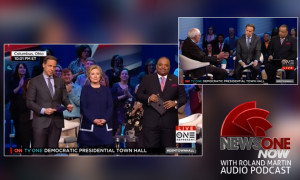

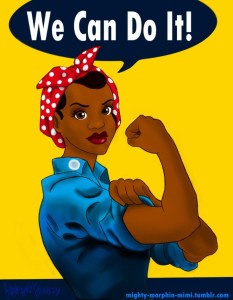

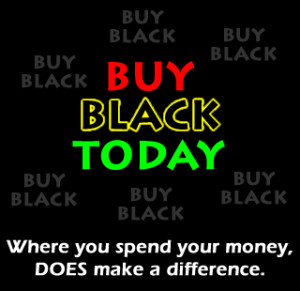




Love this article. So true and love the analogies used.